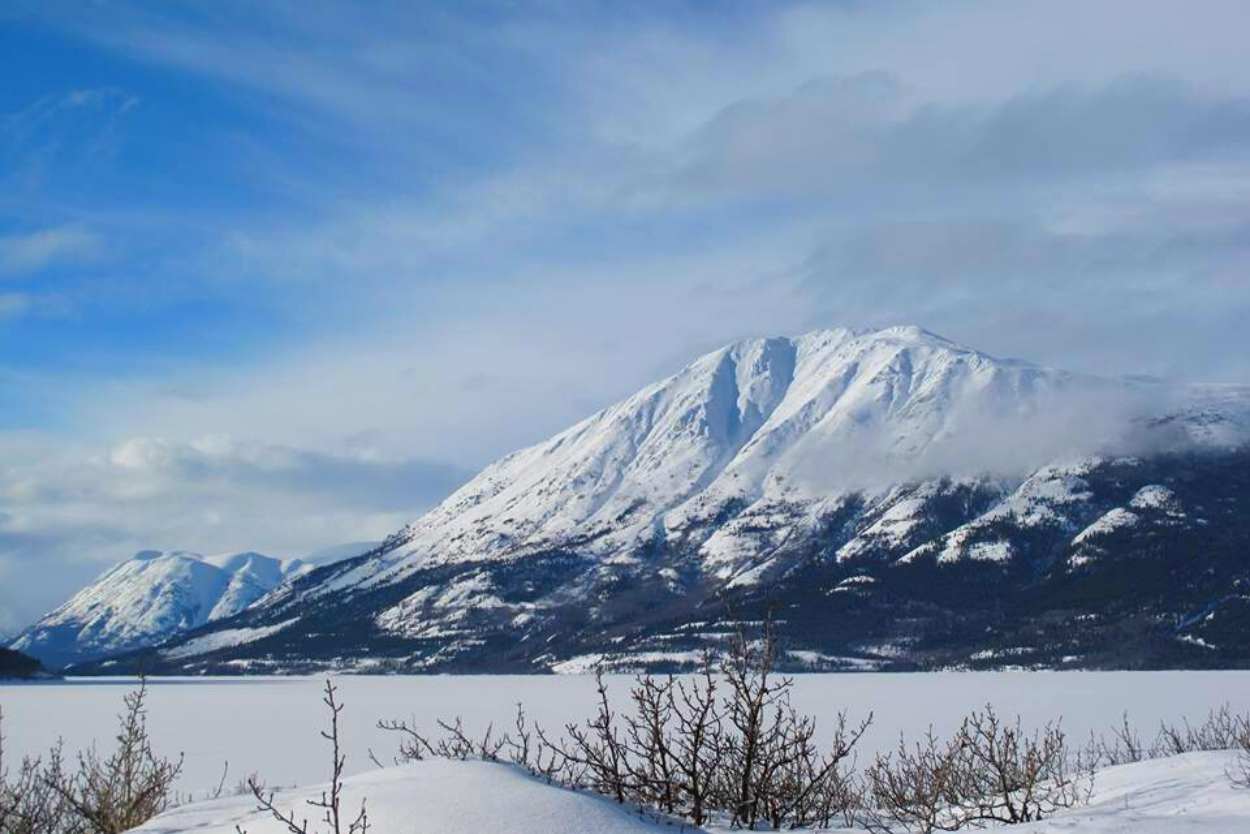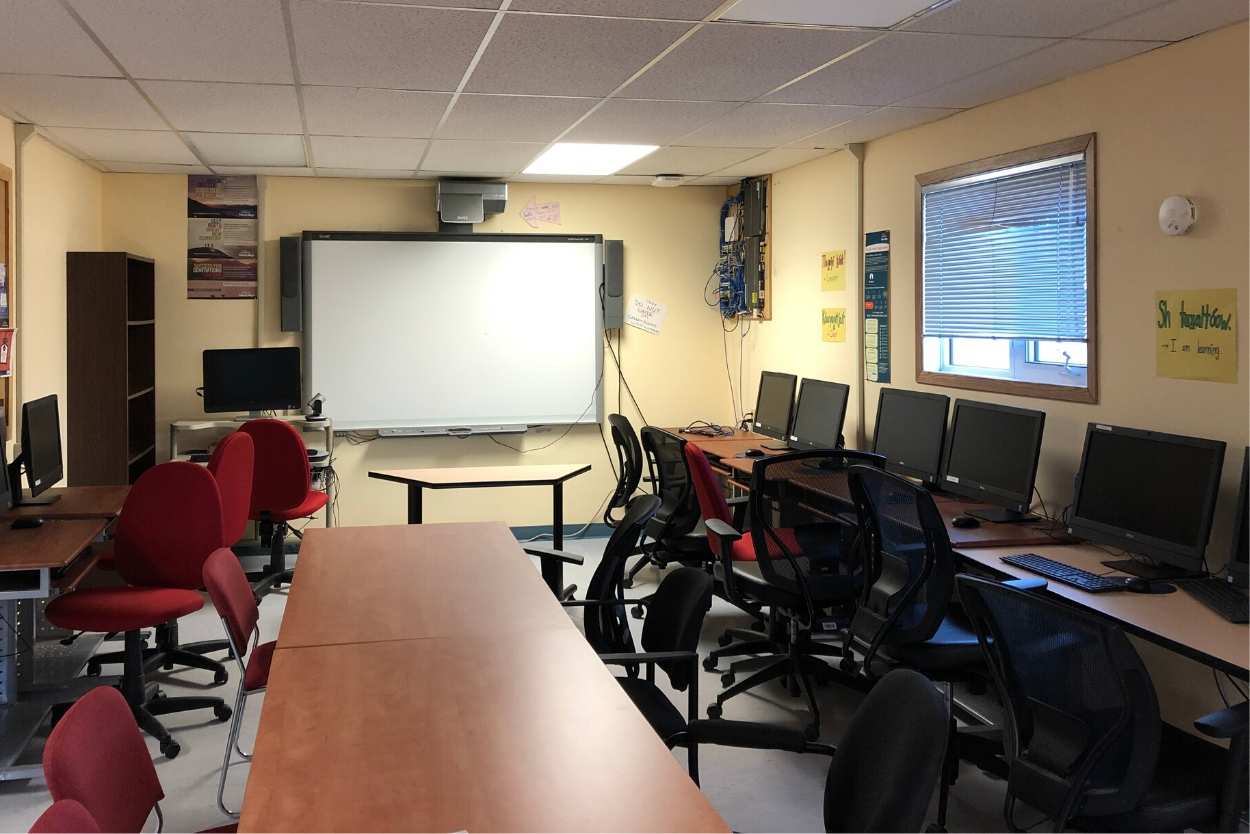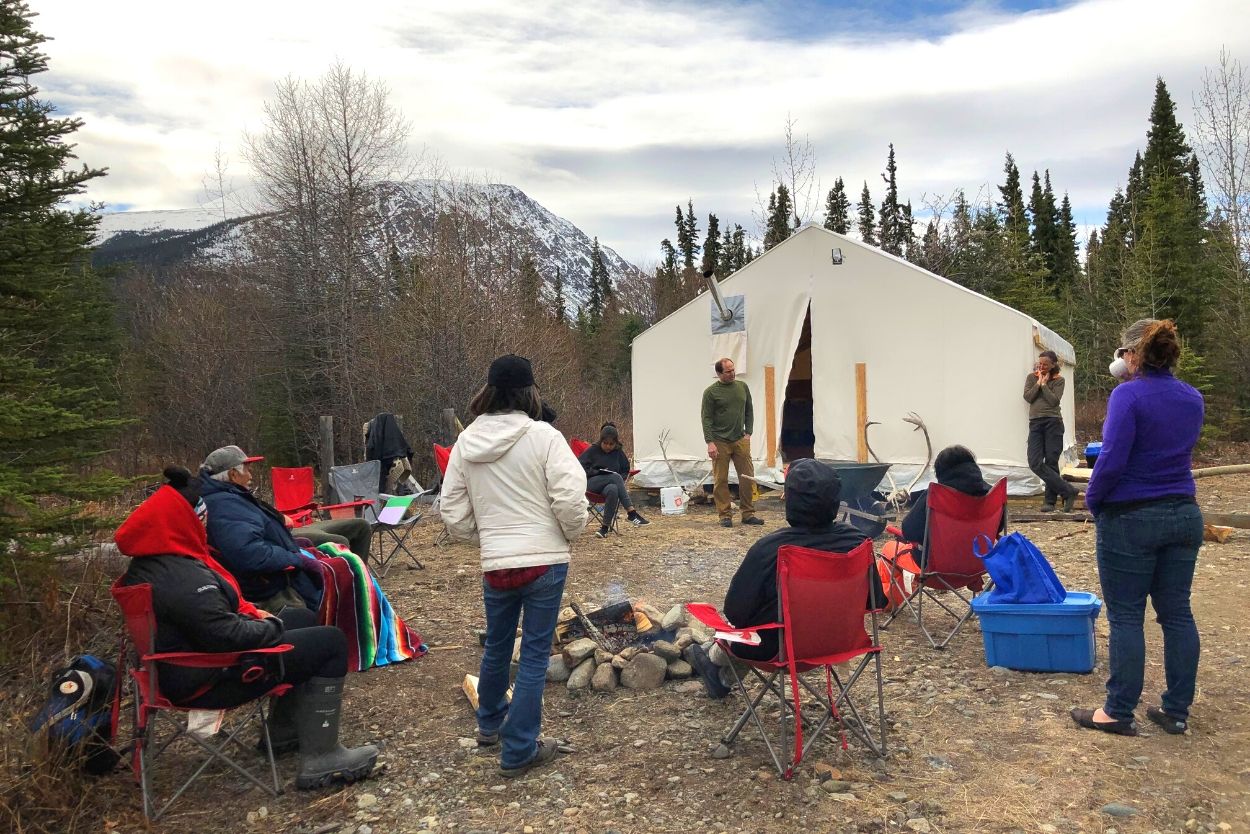The community of Carcross
The community of Carcross is located within the Traditional Territory of the Carcross/Tagish First Nation.
Carcross is set on the shores of Bennett Lake, about 75 km south of Whitehorse on the Klondike Highway. Surrounded by mountains, Carcross boasts stunning landscapes and scenery all year long.

Supportive distance learning in Carcross
Distance learning, or online learning, provides students with access to class instruction over the Internet, rather than in a classroom.
Learn more
Programs offered via distance learning

